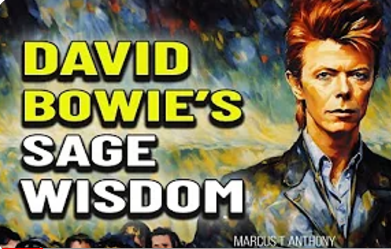The fact that it is so very difficult to offer any critique of the problems within western liberalism without being targeted for “punishment” by that system is evidence that it has become a kind of hegemony in itself. Most sensible people avoid challenging political correctness. Any attempt to challenge the dominant narrative on racism, sexism, discrimation and so on can incur swift and dramatic consequences for the worse.
If policies are implemented at the systems level without a congruent shift in consciousness, many people will tend to return to the very behaviours and attitudes the policies seek to change. There is an obvious self-contradiction in employing a process with inherant intellectual violence to try to dissuade people from being intellectually violent.
Many of the problems we are witnessing today with the rise of conservative sentiments may be insolvable at the level of mind. This is what we are seeing with the backlash against liberalism, as evidenced by the relative success of conservative politicians like Vladimir Putin, Donald Trump and recently with Tony Abbott in Australia.
I believe that the problem is not just the internet or social media, as some have argued. Nor is it that all conservatives are simply stupid. The conservative backlash emerges from the inherant violence of the mind, something that no enforced liberal “machinery” is going to shift, as long as the policies merely target the human intellect.
What we are seeing is the limit of the idea that all you need are more rules and more education and more policies to shift things. Many people are rebelling against political correctness and against not being able to speak their truth.
A good example occured in the news here in Australia yesterday. According to a Fairfax media report, a caucasian student at the Queensland University of Technology in Australia is being sued by an Indigenous worker after he complained on Facebook about being removed from a computer lab. The room had been reserved for Indigenous students (but not signposted as such). According to the article, his error was in criticising the university policy for “segregating” students according to race. There is no evidence that he used any abusive or racist language, yet he is being sued under the racial discrimination act.
Clearly, both parties identify themselves as victims. The caucasian student believes that he has been discriminated against by being forcibly removed from a university space because of his race – then being labeled a racist and sued for criticising the system. We may assume that the indigenous worker feels she is the victim because of the long history of racial discrimination in Australia. By my estimation, both have legitimate grievances. The problem is that at the level of mind, each sees the other as the oppressor, and they are hitting out against the perceived enemy. This is a strong tendency of the human mind, one most likely it is rooted in our biology, our evolution.
Modern liberalism has the unintended consequence of encouraging people to identify with narratives of oppression. It encourages many to be angry, and to blame others and the system. This is despite the fact that the ideals of liberalism are well-intended. They appeal to justice and equality for all. Yet human beings prefer the victim identity to that of the oppressor. When the system labels them the bully, they get angry and lash out. When they are labelled the victim, there is a tendency for them to assume an attitude of moral superiority and to project shame at the “oppressors.” The accused then hit back, and round and round we go on the carousel of postmodernity.
What is to be done about this?
I have a suggestion which I believe would greatly diminish the tendency for mental projections to escalate into intellectual and sometimes physical violence. What if both parties in the QUT conflict had the capacity to witness the contents of their own minds, including the narratives of power and oppression which emerge from their worldviews? What if mindful reflection was their initial response, a state initiated before any further mental attitudes or physical actions took place?
Based on the Fairfax media report it appears neither the caucasian student nor the Indigenous worker have the skills (or intention) to assume responsibility for their projections.
The current Neo-liberal system encourages the Indigenous worker to pursue an unnecessarily aggressive action (litigation) against a person who is merely criticising a university policy. Once societies begin to become tightly controlled by such liberal ideas they tend to re-establish an hegemonic narrative, and those who challenge the narrative get punished (mostly they just stay silent). The presence of Donald Trump is in part a reaction to the powerlessness that a certain segment of the American population (mostly working class) feels under such a system. Is this one of the factors which leads them to reject the liberalism?
Meditators and practitioners of deep presence know from personal experience that the majority of human confict and “drama” emerges from mental projections. Yes, there is such a thing as “the good fight.” Yet the desire to fight an “other” is often completely unnecessary. Instead we can either walk away or engage the other in presence. Presence bypasses the hostility the mind tends to generate when it sees itself as being wronged.
Whatever legal or practical systems we lay down to solve the problems within our institutions and societies, none will ever be perfect. There will always be people who are inconvenienced or wronged, even by the most well-intentioned policies. Indeed, as a friend of mine used to say, solutions are problematic. It is irrational to believe that policies in themselves will ever resolve all human conflict. Yet what would greatly assist us as we all live and interact within such systems is the ability to be present to the mind and it’s projections. It would cut out the drama, leaving us with more time and energy to address the problems that are truly important. Is being asked to leave the Indigenous computer lab really that important? Does having your lab policy criticised on Facebook really require the racial discrimination act to be invoked? What about most of the things we get worked up about each day? I will leave it up to the reader to decide for yourself the answers to these questions.
Extreme liberalism can be just as hegemonic as extreme conservatism. Both represent a kind of intellectual violence, and that often escalates into more overt forms of violence. Both ideologies tend to operate under the imperatives of the mind.
I believe that if all people had the simple capacity for embodied presence and to be able to witness the projections of the mind, the ideals of liberalism would follow naturally. Then there would be no need for the enforced hegemony liberalism has come to represent for many.
In my ideal world, both liberals and conservatives would introspect to acknowledge to what degree they have become attached to an inflexible and intolerant worldview. They would then be able to assume responsibility for the intellectual violence that their projections create.
But how can this be done? This blog post is not the place for such practical details. More about that later. But I will grant one hint. You won’t transcend the current system by surfing the comments pages of most social media sites and firing off angry responses to other people’s online projections.
I am under no illusions that mindful attention will automatically solve all world problems. Nor should we desist with implementing sensible “liberal” policies to help address the problems we see in the world. Policy can help illuminate the dark spaces where inequality and injustice reside. Yet I believe a greater capacity for mindful attention can make a real difference in the way people respond to such policies, in real life situations.
Marcus







3 thoughts on “Beyond the Violence of Neo-Liberalism”
There are those who have awakened to a point that they can look on the world as projections and understand how things work. And then there are those who are still asleep, and in their dream world they struggle for recognition and acknowledgement.
Sometimes I think that the awakened can only talk to other awakened, as those who are asleep will ignore the wisdom as they struggle for their personal dramas and anger to be acknowledged by others.
Yes, Allan, most are stil in the Matrix of the mind. I don’t think you can really push them too much. Just being present to people, and occasionally giving the odd person a jab to the ribs is all that’s necessary. 😉
Brilliant article. ‘m a bleeding heart liberal because I feel everyone’s pain too deeply, I agree with you.